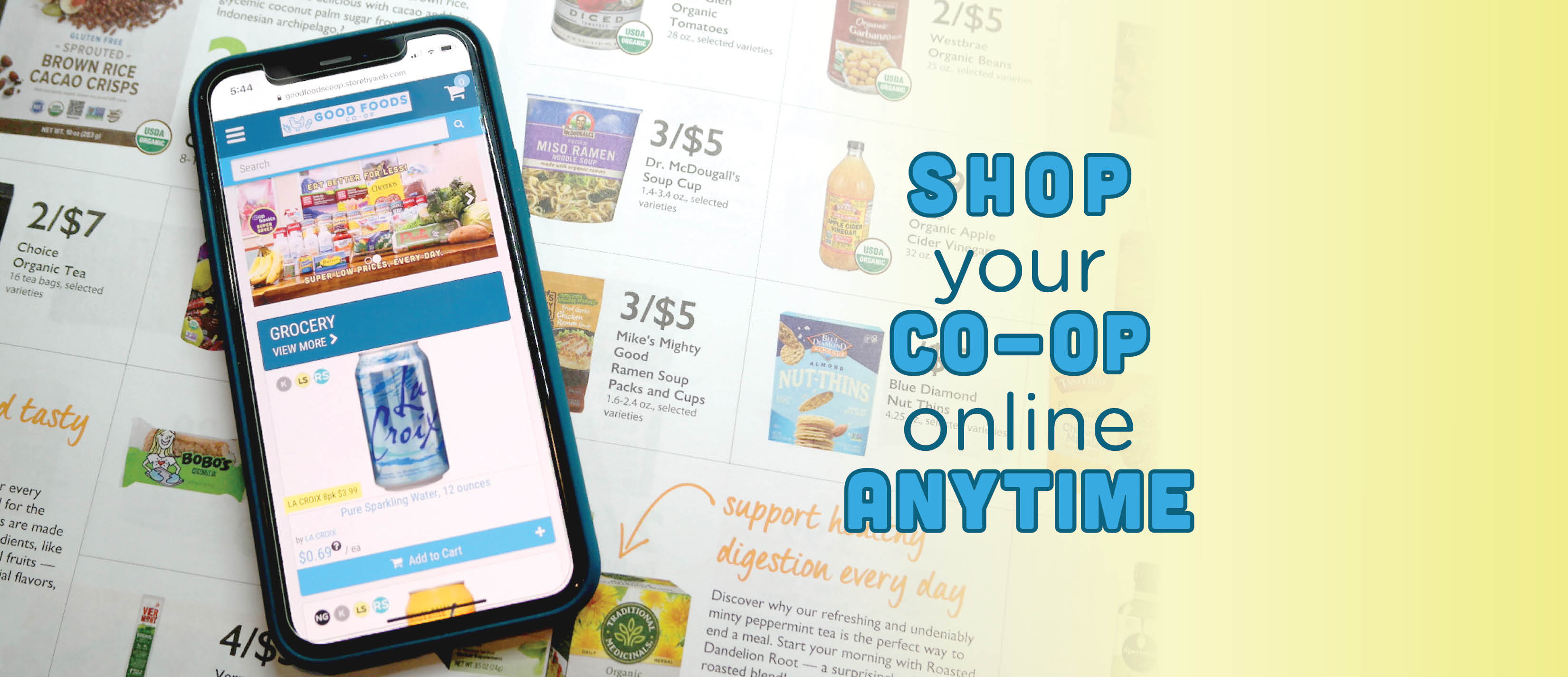This piece was originally published in our “Fresh Bites” Holiday 2021 Owner Newsletter.
 Will Rush, Good Foods Co-op Meat & Cheese Manager
Will Rush, Good Foods Co-op Meat & Cheese ManagerBy: Will Rush, Meat & Cheese Manager
Kentucky’s own Wendell Berry said in an essay titled “The Pleasures of Eating” that “eating is an agricultural act.” This declaration, written over twenty years ago, inspired Michael Pollan and other pioneers in food culture to take a closer look at the story behind the food we eat, and it’s a quote that we hold dear to our heart at Good Foods Co-op—you may recognize it from where it’s emblazoned along the wall in our Café. We believe that it’s important to understand that when you eat, you are participating in agriculture. The way most food economies are run these days, it is evident that they would have us forget that when we sit down for a meal, we are directly connected to the land and resources used to produce that meal. You are what you eat, so to speak, and you are what you eat eats.

With that in mind, when you walk down the meat aisle of a grocery store, you could be walking through green pastures just out of town or crowded feedlots hundreds of miles away. To add to the confusion, some retailers may market something raised on those distant feedlots as “local” simply because they butchered it in-house, or their term “local” may be defined as within 500 miles. At the Co-op, we only use local on products grown, raised or made in Kentucky. There are so many advantages to buying truly locally-raised meat, and those advantages become clearer as you consider the story of the food we eat. One of the most obvious advantages of buying locally-sourced meat is its reduced impact on the environment. The closer the source of your food, the less transporting, and, therefore, the smaller contribution to fossil fuel emissions. Most local farms are also smaller operations that work in harmony with their land. They are more concerned about quality than quantity and aren’t knocking down rainforests in South America to pasture their animals.

Buying local also helps your community. Most local farmers are self-employed, and they’d like to keep it that way. When you buy from your local farmer, that money stays in the community and helps the local economy. Keeping local farms viable prevents urban sprawl, and ensures that your community continues to have a source of healthy, sustainable food. And yes, local meat is generally healthier for you! Similar to knowing where your fruits and veggies are grown, knowing where your meat comes from and how it’s raised leads to a healthier lifestyle. For example, did you know that 100% grass-fed and finished beef has a far superior nutritional profile than grain-fed beef? We encourage you to familiarize yourself with your local farmers and their practices to make sure you are purchasing and consuming foods free from added hormones, antibiotics, steroids, preservatives and/or chemicals. We are happy to help make you more familiar with the products we carry—just ask!

It is also well known that sustainably-raised local meats provide far superior flavor than their industrial counterparts. Eating pasture-raised and grass-fed meats that haven’t traveled halfway across the country (or world) isn’t just a healthy, environmentally-conscious decision—it’s tasty! And many people also don’t realize that it can save you money. When your meat doesn’t have to go through a series of wholesalers and retailers with everyone making a buck at every stop, and the cost of shipping remains minimal, buying local can be relatively affordable given the high quality.
We encourage you to remember every time you eat, especially during the holidays when meat can be the focal point of your meal, that you are participating in the agricultural process that feeds your planet, your region and your community. Buying local keeps you and your local food community healthy, and you have a choice of how you want to participate in agriculture. As Berry said in that essay, “A significant part of the pleasure of eating is in one’s accurate consciousness of the lives and the world from which food comes. The pleasure of eating, then, may be the best available standard of our health.”
 Find this article and many more in our “Fresh Bites” Holiday 2021 Owner Newsletter
Find this article and many more in our “Fresh Bites” Holiday 2021 Owner Newsletter